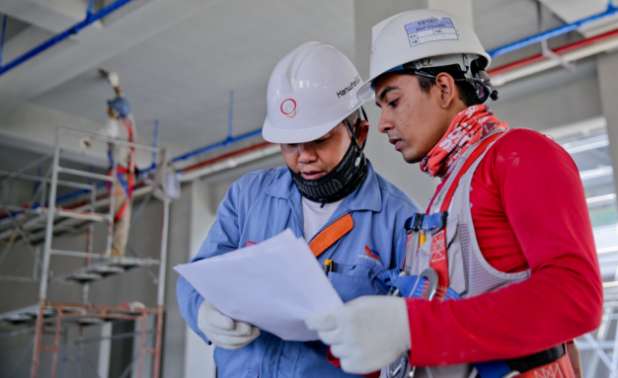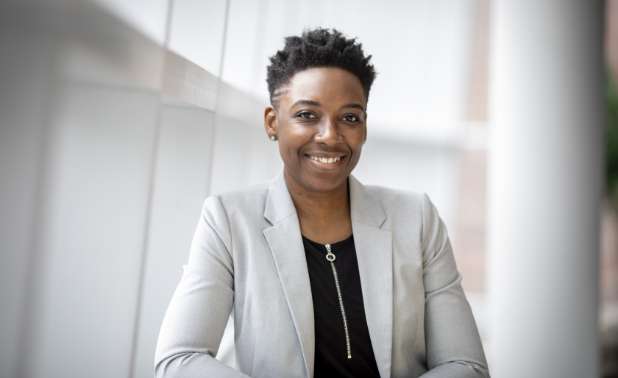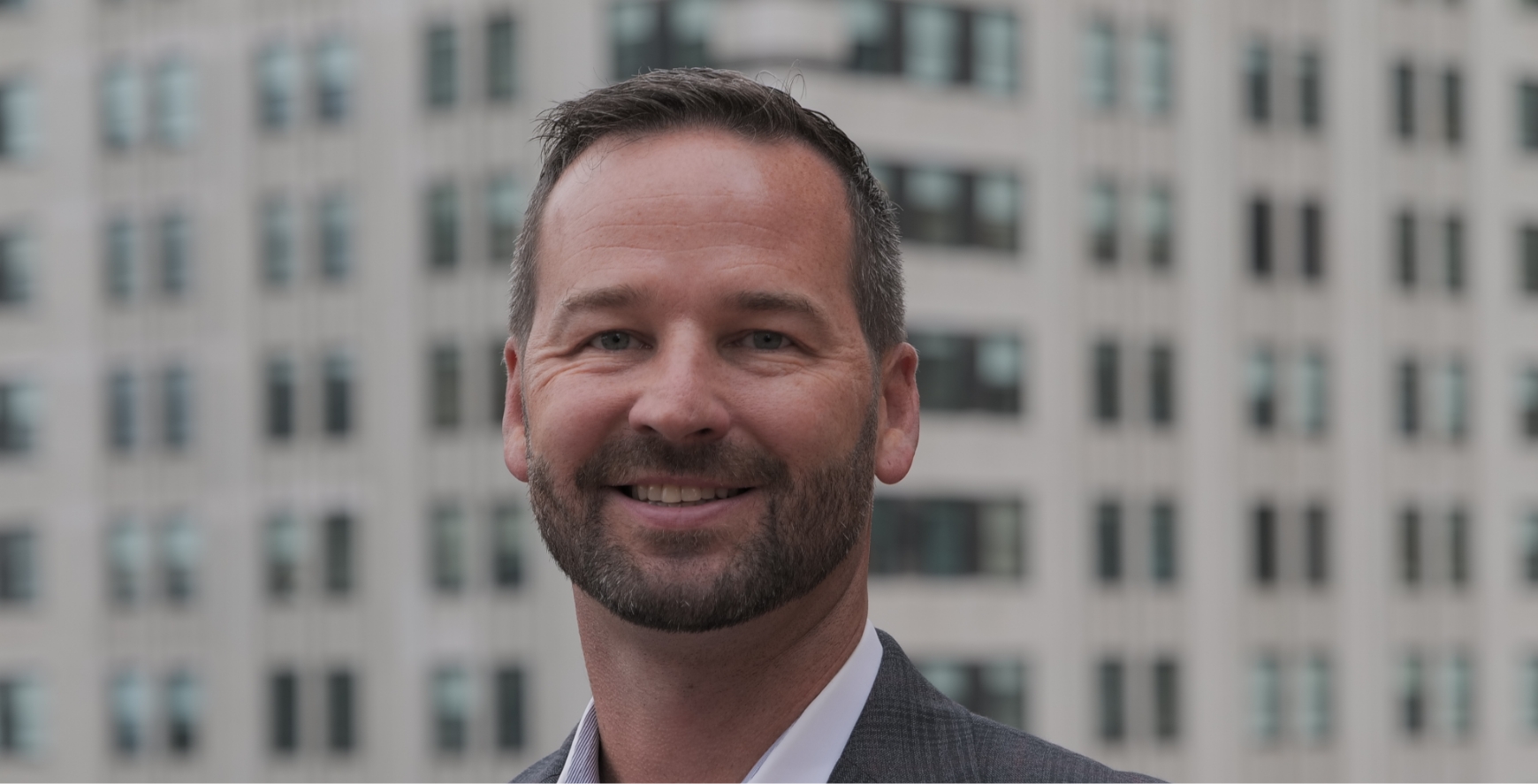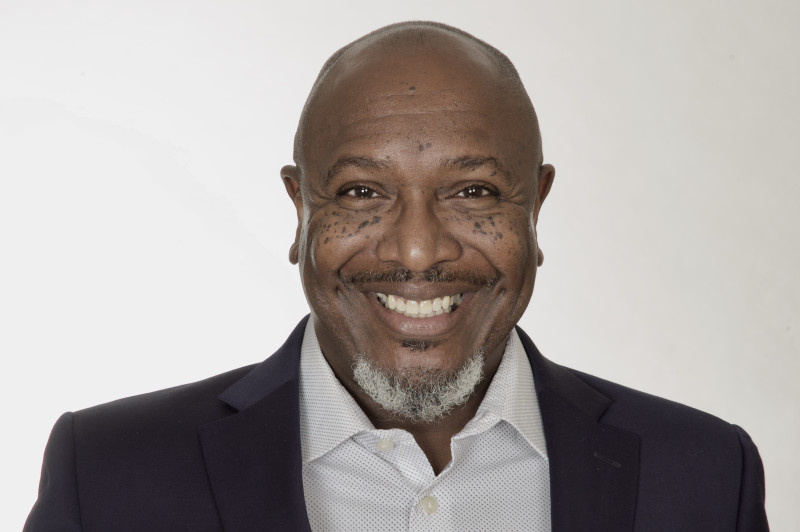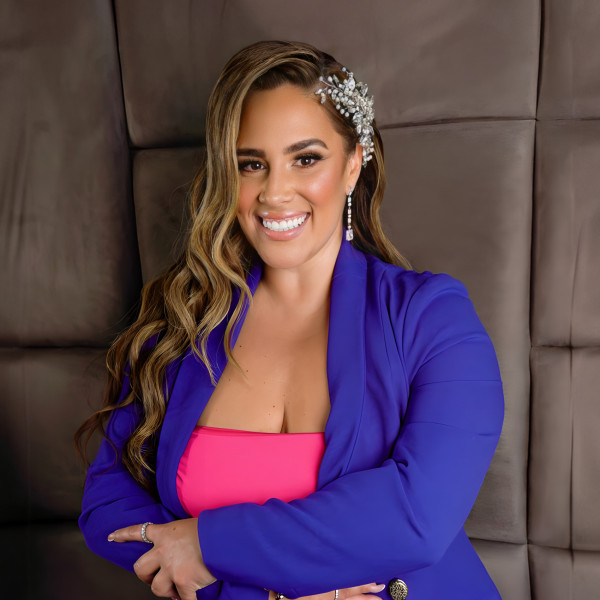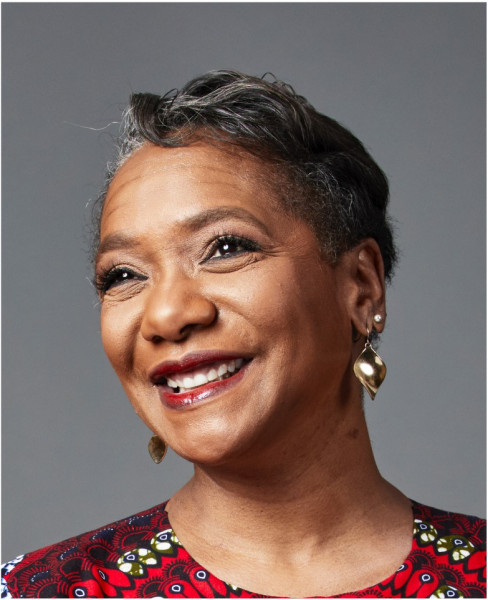Jenny Davis:
Welcome to But First, People, a podcast brought to you by Pride Global. I’m your host, Jenny Davis, vice president here at Pride. Along with my colleagues on this podcast, we will dive into diversity, inclusion, and equity of service and staffing in the human capital industry. Join us each month as we sit down with industry experts to share their stories.
Jenny Davis:
Hi, everyone. Welcome back to But First, People. I’m excited to sit down with our very own Tim Tobin, for my first episode. Tim is the co-founder and managing director of Russell Tobin & Associates. Tim oversees the fully integrated search, staffing, and embedded solution firm’s work across the globe. He’s a 24-year veteran of the human capital industry. In addition to his work with Russell Tobin, Tim leads Pride Health, offering comprehensive, staffing services aligned with the healthcare community’s unique needs. Over the course of his career, he’s received numerous top-supplier awards and partner recognitions and helped to develop the partnership-first approach that has earned Russell Tobin and its parent company, Pride Global, a spot among America’s top-50 largest staffing firms. But Tim’s worked hard to keep himself available as his client’s trusted advisor, one who will be the first person on the phone to support them in realizing their business aspirations.
Jenny Davis:
Welcome to But First, People. Thank you so much for coming and being my first guest on the podcast. It’s wonderful to have you, and I know our conversation’s going to be delightful because every conversation with you is. So, to kick it off as is the tradition of But First, People, can you give us a little ditty, Tim Tobin?
Tim Tobin:
Well, thanks for having me—first timer here and excited to participate. And since you asked, I am musically challenged, and I rarely remember lyrics, but I listened to this song when I was a kid, and it was probably the only one that I sang to my children that was not a children’s song. So, from Kenny Rogers, “The Gambler,” here we go. [Singing] There you go.
Jenny Davis:
Love it. Smiling ear to ear, I am. I love Kenny Rogers. I sort of wondered—so fun fact that I do know about you is your interest in Hall & Oates, so I was sort of wondering if you were going to pull that one out of the hat, too.
Tim Tobin:
Love Hall & Oates. Just don’t know the words, but—
Jenny Davis:
That’s fine. That’s fine. All of their words kind of blend together. Like, are you singing “Maneater” or “Rich Girl”? I don’t know. It’s kind of all the same. So, but anyway, moving on from the song. That was delightful and a great way to kick us off.
Jenny Davis:
A first question to kind of get us going is I think a fascinating thing about our industry and being in recruiting and staffing and talent consultation is trying to explain what you do to other people. So, do me this favor, Tim: imagine an alien has landed on earth, and you’re the first interaction they have. And they say, “Well, nice to meet you. What do you do here?” whether in their tongue or ours, and you have to explain what you do. What do you do, Tim Tobin?
Tim Tobin:
Well, that is such an easy question with a very complex answer. And I think the alien that asked the question might be either one of my parents, whenever I go home to visit them.
Jenny Davis:
Right?
Tim Tobin:
Because I’ve been doing this my entire career. And I don’t know if they entirely know what I do. So, might not be the best answer, but here it goes: at the end of the day, being a recruiter is being a connector. And it’s a matter of connecting people with opportunities—opportunities being employment, positions, companies, going out and finding companies who are looking to find people who can do a job in a certain skill set and geography. And they have the ability and the potential, or the experience, or a combination therein, with the individual who is also looking for that particular type of employer and the skill that fulfills their passion, and their ability, and their potential and interests.
Tim Tobin:
So, in that example, you have two potential buyers in the equation, because a candidate is going to want to work at a company and a company is going to want to hire that candidate. So, if this alien is looking for work, I’d want to know what type of experience, skills, interests they have and try to mirror that with the companies that are out there looking for that particular skill set, experience, and interest level.
Jenny Davis:
I love it. That’s a great answer. So, you used a couple words that represent to me, Tim Tobin’s superpower. So, for the one-third of the world who is not in some way connected to Tim Tobin, because you have the most massive network of any human I’ve ever interacted with—for those of you that don’t know and are listening, Tim is a master connector. And not just that, in my belief and in my experience, because he did this with me, he sees opportunity and potential in people before they see it in themselves. So, what Tim does is he meets someone, and in meeting that alien, diagnoses in two seconds that, “You said you’re this, but I sense you’re that. So I’m going to introduce you to these 18 people.”
Jenny Davis:
It’s a fascinating, amazing, and admirable trait. And it’s why people look at you in awe, Tim Tobin. It’s just astounding to watch. And why do you think your brain works that way? What is it about you that can see something in someone before they open their mouths, before they’ve told you what they do for a living? What inspires you to do that all the time?
Tim Tobin:
That’s a great question. I was getting goosebumps as you’re describing some of the experiences that I’ve had over the course of my career. And I remember from the time that we met at a conference and executive forum, and I just see how you carried yourself, how you interact with people. And sometimes during an interview, people give you answers that they think you want to hear or that you should hear. But a lot of it, for me, is trying to understand who the person is, what is really important to them—and more times than not, the job that I might be aware of is not right for them—but having a conversation with them, understanding what their goals are, what their passions are, and trying to sit at the same side of the table as them to help them just navigate this crazy world that we’re in. And the ability to do it both for clients and candidates—but at the end of the day, the individual could be the same person. I’ve said it numerous times. “Our candidates today are clients tomorrow, and clients today are candidates tomorrow.”
Tim Tobin:
But I think what really motivates me is just helping people advance themselves regardless of where they are. Selfishly, yes, I want to identify talent and work with talent and keep talent close here within RTA and our clients and candidates. But I also just want to help society, help humanity, advance what they’re doing. I’ve been given some fortunate opportunities to be where I am today and playing an active role in helping others get to a better spot, wherever that might be. It’s not linear in terms of anyone’s path or growth, but a positive experience in helping people throughout.
Tim Tobin:
And sometimes, the confidence builder in seeing something in someone? We all have talents. We all have strengths, but we might need to be reminded of them. And playing that role is one that’s very fulfilling for me. It fulfills my “why,” why I do what I do. It’s—you got me thinking, I have a lot more… I was going to be a guidance counselor. And I feel like I’m guiding people with their careers. And even if I don’t make that placement, but they have a positive experience and they leave in a better position than where they started, then I sleep well at night.
Jenny Davis:
Wow. So, guidance counselor, maybe firefighter, turned leader of the recruiting industry. It’s a pretty amazing trajectory. All of which—it’s the funny thing, having got to know you, in almost a decade of knowing you, it’s been fascinating, because I can see you in those scenes. I know you as you know, my leader and the overseer of Russell Tobin, but I can also see you being a firefighter, and I can see you being a guidance counselor. And that’s maybe what’s cool, Tim, is that I think in this industry you get exposed to so many careers, and you get to sense what people do for a living. That’s part of what I love about it, is I don’t know if I could be a solutions architect over technology in a Fortune 500 company, but I get to watch kind of the back end of what they do and learn about it. And I think it’s a fascinating thing.
Jenny Davis:
And I think you have that natural curiosity too, of wanting to learn about the person and not just the J-O-B that they fulfill. Right? So, that’s a very cool thing. So, I thought your answer was totally on point—and something I’d share is just the fact that every time you tell me like, "Oh yeah. I wanted to be like a pastry chef." I’m like, "Oh yeah. You could do that, too." So it’s a cool thing. Like a Renaissance man in a way of those things. But all of them relating to people and making people smile, or making people safe, and I think that’s something you do a lot of. A fact I want to leave you with and kind of get your reaction to—so you talked about helping people understand their “why” and find their purpose. Do you have any idea what the number 294 currently represents for Russell Tobin?
Tim Tobin:
294? Maybe our head count.
Jenny Davis:
Yes. So 294 human beings currently on this planet work on behalf of your dream. How amazing is that?
Tim Tobin:
That’s...
Jenny Davis:
Yeah, pretty cool. Right? So I didn’t know I was going to get you so fast, but it’s an incredible thing. And I know I reflect on those moments. I’ll join a meeting, and I see all these little screens pop up. And just thinking like the impact you have. And so, I wanted to just share that with you because it’s a fact, but behind that fact are people, and it’s just amazing. So, Tim, just take a minute, I hope and reflect on that piece and that they want to do it partially for you. So, “but first people,” and that’s what this is about.
Jenny Davis:
And I think one of the things I wanted to say here and talk to you about is I think part of it and why it works and why that 294 continues to grow in my time with you and only growing up, is you put people first, right? You do. And I think that’s why it works. So, I talked about why is this a fit for who you are? And that’s kind of that conversation we went down, but how do you feel thinking that 294 people are helping you fulfill your dream?
Tim Tobin:
It’s a lot to kind of reflect back, and candidly, I didn’t have a vision of this being a dream. And I feel like I’m just a guy going through life and trying to do the best, learning along the way, failing fast, and making mistakes. But reflecting back on, I don’t think about 294 people working for me, I work for 294 people, and where they are and what they’re doing, and hopefully impacting the local communities and people and families that they are closest to, like I try to do, is humbling.
Tim Tobin:
Usually, I guess, I focus more on the present and the now, although I like to reflect on stories of people and how they contributed to our story of the fact that we are 294 people now. And we were three, February 16th, 2010, and what a journey. And being able to work and meet talented people who inspire me and I get to call coworkers and friends and colleagues. And being in an industry that evolves, where I say, "Every day’s a school day," and the novelty of it never wears off. I think I heard or I read a stat, 85% of the jobs that will exist in year 2030 have not been invented yet. They do not exist yet.
Jenny Davis:
It’s incredible, isn’t it?
Tim Tobin:
So, you have to find the potential in people to meet opportunities because they don’t exist yet. And just trying to learn and adapt and adjust and enjoy the ride—and it can obviously be, yeah, overwhelming. And just hope that it doesn’t end, and do the best you can every day. So, thanks for having me pause and reflect for a minute there.
Jenny Davis:
Yeah! You always encourage us to stop and smell the roses, so we needed that moment for you, too. So, you talked a lot about the development of this industry, and in my time getting to work with you, I watch you get so excited about the novelty of new ideas and where this is going and what it might look like. What excites you about the change you’re seeing in our industry right now?
Tim Tobin:
I think one of the most exciting aspects of it is—like I pinch myself—just by doing the right thing and putting people first and helping them achieve their goals has become a priority for corporate America.
Jenny Davis:
Mm.
Tim Tobin:
It was, I believe, mainly about the numbers up until 10 years ago or so. And I think there’s been a tremendous paradigm shift where, even as I go to some conferences and it’s not about just the Xs and Os, it’s about the feelings, about the sentiment. It’s about the true talent, and the talent is people. And what excites me is when I hear from somebody that I met 5, 10, 15 years ago, and I played some role in a positive experience, and they’re reaching back out to me to potentially help with a problem or a challenge that they’re faced with, whether it’s a new job search or they’re in a company and they need to hire, they have a project. And the fact that where we sit, we touch so many different industries.
Tim Tobin:
We are growing globally because there are people across the globe who share the same sentiments that I do here in 42nd Street in Manhattan: that people first and connecting people with opportunities and opportunities with people, that novelty isn’t wearing off. And the ability to do it on a scale that we have done—again, it wasn’t a dream, because I didn’t have the vision, I didn’t have the insight into it. But being able to react and adapt and pursue challenges, more times than not, they’ve been successful, but we’ve had some failed ones, and that is extremely exciting.
Tim Tobin:
So, the novelty of that is good. But at the end of the day, my baseline is “who” and the individuals that have been part of the story, because if you are running a race and you’re the only one to complete it, in my opinion, it’s not as enjoyable of a race. And I swam competitively for four years. We won two championships, not that anyone’s counting. But my fondest memories were the relays and were the championships, not any individual accolades.
Jenny Davis:
Well, that’s a great anecdote. I love that. That’s fodder for our next team meeting, Tim. I like that one. You’re so right about the idea that we have to think more about the person than the job. And that’s true in what we do and how we train our recruiters, right, is that you’ve always shared that the vision of this is not to walk in and fill a role, but it’s to help find the person find their path. And you referenced having people call you 10, 15 years after. I mean, that’s like a daily occurrence for you. It’s astounding. Right? I get them every once in a while, like I’ll have someone who, maybe we parted terms and parted ways on terms that weren’t perfect or this wasn’t the job for them, and I had to be the one to tell them that, because that happens in life, right?
Jenny Davis:
In the same way you see potential in people before they see it in themselves, sometimes you also see like, “You’re not happy here,” before they’re willing to admit it for themselves. And so, you part ways with people. And one thing that I think is always interesting is when those people return to you or come to you 10 years later and say, "Thanks for helping me through that, too. And look where I am now. And it’s great." And I think a beautiful thing about Russell Tobin is our willingness to let people fly the coop and move on and realize their hopes might be somewhere else. And why is that part of your ethos? Why do you believe in allowing and affording people—and continuing to coach them and mentor them once they’ve left the company,
Tim Tobin:
The industry has changed dramatically. My dad worked for the Department of Transportation for New York State for 29 years. Ask anyone now to work someplace for 29 years, it’s not going to happen. I mean, let alone—try getting 2.9 years out of somebody. So, I think looking at where we are, present day, and the opportunities to try different things and to change your mind—and as palates change, your opinion of jobs and responsibilities might change, and you want to continue to push yourself to reach your potential. And I think where we are, we’re very comfortable in the position that we’re in and can appreciate the fact that we might not be the end game or the final destination for many. But, again, it goes back to playing an active role in helping people get skills, get experiences. Obviously, we want people to stay, but try different things.
Tim Tobin:
And that’s why I love the concept, even, of a boomerang. People might go and try and do something else someplace for a period of time, and maybe they come back. Maybe they come back directly, or they come back indirectly, and they’re in a seat externally to advise. I’ve talked about the “board of director” concept and who cheers for you and roots for you no matter what—and those seats can be held by people that are in your family, in your company, in your network. But I do believe in finding that type of success through service and helping others on their journey and their path, again, goes back to my “why.”
Jenny Davis:
Your “why.” Your “why” and your superpower, kind of one and the same. And it’s a beautiful thing when you find it in the same place, right? So, you said, “the board of directors,” and because I get to work with you, I know what you mean. It’s who advises you. And the concept in and of itself has existed for a long time. But what does that mean in your life? And leave that as a takeaway for people, please. It’s something that I come back to and you challenge me to think about often. What is that concept for you, Tim? And why is it valuable to you?
Tim Tobin:
Well, I think that it’s ever-changing, and you might not think about it, but five years ago, imagine yourself sitting in a boardroom and there are a certain number of seats at that table. Who cheers for you and roots for you, no matter what—whether you make the right decision or the wrong decision, they’re going to want you to be happy and successful no matter what? So, there’s a finite number of people that are sitting at that table. A lot of times, it’s direct family members and those who are closest to you, but because of life, that changes over time. So, that board five years ago is probably going to look different present day. And who knows what it’s going to look like five years from now? And just think about where you were as a person five years ago. So, I had three kids. 10 years ago, I had one. But things change, and your perspective and your opinions and your approach and your interactions and many things change, but sometimes, most relationships, and especially the ones that are cheering for you no matter what, do not.
Tim Tobin:
So, that board is very important to me. And the other thing that’s important is, "Okay. Well, if these individuals are on my board, do they know it?" And part of my goal is to sit on other people’s boards, so I can be that cheerleader and that advocate and that person that helps them through a challenging time, that I can be one of those first calls. Obviously, it’s more professionally related, and that’s a major aspect of life. And being that resource is something that I think, again, motivates me. And I would just encourage you out there listening that if you really want to find fulfillment, be selective with who is on your board, but then work really hard to find a seat at somebody else’s table where you can be that person for them, even if they’re not sitting at your table.
Jenny Davis:
That’s great. Well, Tim, you’re on mine. So, if I haven’t said that, and you say, “You don’t know where you sit with people,” I’ll tell you you’re on mine.
Tim Tobin:
Thank you.
Jenny Davis:
So, it’s an honor, always, to have people come into your lives and then reflect on that, in terms of the importance they’ve played in not just your professional development, but your personal, and who you’ve become for me as a woman, and a mom, and a parent, and all those things. So, it’s a beautiful thing! And I think the “board of directors” concept, too, is empowering, right? If you can think about knowing you have support in other places when you need it—because sometimes if you get so siloed, focusing in on, "It’s my family," well, what if your family disappoints you in a moment, then who do you lean on? If your best friend disappoints you in a moment or lifts you up in a moment, or you need people for different reasons.
Jenny Davis:
And so I’ve really thought and reflected a lot on that in the eight years I’ve known you, because one of my first interview questions with you is, "If you take this job, who are your first five phone calls? Who are you calling?" And that can be professionally and personally—and maybe it’s different, maybe it’s the same, but it was a very interesting thing for me to think about. And is it five? Okay. But maybe you want it to be 50. And how are you actively pursuing the attempt to build that list to 50 people who take your phone call? Again, not everyone can be you and have 5,000, 5 million, 550—but do you want to be a person of five or 50? And maybe five’s enough, and that’s great. But the other thing you always shared too, when I started, and I want to talk to you about this because I don’t even know if you remembered saying it, which is sometimes the best lessons you teach people.
Jenny Davis:
But I took a career risk in my mind to do this. I was alone and jumped into a job that I felt ill equipped to potentially handle, of building part of Russell Tobin in a different market and working for a New York-based company, which felt much faster paced and, frankly, cooler than I was. And you said, "Not everyone’s willing to take career risks and you did. So, let them be a part of your story. Call them and tell them what you’re trying to do, and ask for help, because not everyone’s going to do it. And you did. So, tell them to be part of it."
Jenny Davis:
I thought that was so cool, and I’ve used it multiple times since—and given you credit, just so you know—but as people take career jumps, right, you do have an ability to ask for help, that I don’t think everyone does. Why? Though you help everyone and are always willing to help, I do think it’s a very, sometimes unnatural thing in a successful businessperson to say, "I need your help, too." What about you is willing to be vulnerable in that way and ask for help? And why do you think that’s critical to your success?
Tim Tobin:
I think it’s being as much of a realist as possible. And knowing that no one individual is going to achieve the success that they might potentially have a part in by themselves. So, surrounding yourself with others who bring things to the table—it could be bigger, stronger, smarter, faster, better—I think needs to be welcomed, needs to be celebrated. Those individuals need to be empowered. And it’s not because they need to stay in line behind you. That’s not really going to allow for growth. And I think when I look at just who I am, I have many limitations—and I am aware of most of them. And knowing that there are people like you and others, who are much more capable and much more talented to do something that’s going to benefit us and our candidates and our clients and be more fulfilling than me doing it myself is...
Tim Tobin:
And then, seeing that success is just as rewarding, because they’re taking a chance and they are then being part of the story. And I always talk about the concept of being a contributing writer or editor to the story. And it’s rewarding to see things happening where I play very little, if any role in, and how successful it might be.
Jenny Davis:
Hmm. That’s so great. Well, maybe that’s part of it too, right, in recruiting, is we get to identify something in which we feel someone could be great, and you give them the opportunity, but it’s up to them to do it, but you can sit cheer in the background and watch it work. Maybe that’s kind of the magic of it. And that’s why maybe your DNA, you were built to do this—is that you do it not only for candidates externally, people internally, and kind of all around you, and that’s just—you live as a recruiter. You live as one. You don’t work as one. You live as one. Is that a fair statement?
Tim Tobin:
Yeah, I think it is. Living in the gray area where whether it’s my work or personal life, it’s pretty integrated, because you’re still dealing with people on and off the field. Having a certain sense of authenticity is, I think, a requirement, but it’s my commitment, doing what I say and saying what I do. And blurring that line makes it easier for me to just navigate life. And the examples always present themselves. It’s just that—my seven-year-old’s softball season, which I was coaching this year, next thing you know, one of the other parents is a client of ours.
Jenny Davis:
No way.
Tim Tobin:
And it happened from being on the softball field.
Jenny Davis:
Nice.
Tim Tobin:
And it’s connecting those dots—and it’s rewarding because it’s more personal, and therefore, it’s more important because it is personal.
Jenny Davis:
Well, Tim, it’s been a delight. You know I could do this all day, but I think I’ve gotten the great insights that I would hope you’d share with others beyond the walls who normally get to hear your voice, and hear from you and hear the heartbeat of Russell Tobin. So, you give a lot, and we’re all very grateful, and I’m grateful that you shared these ideas with a broader audience today, and they got to hear your voice, because it’s important, and it’s a powerful voice, Tim. So, thank you for making time for But First, People, and I’ll talk to you soon.
Tim Tobin:
Sounds good. Thank you for having me.
Jenny Davis:
Thank you so much, Tim, for joining us. We really appreciate it. Thank you to our viewers and listeners for spending time with us. To learn more about Pride Global, please check out prideglobal.com. If you have any questions for Tim or myself, please email us at butfirstpeople@prideglobal.com. Also, don’t forget to like, share, rate, and subscribe to our podcast. Thanks again, and we’ll see you next time.




